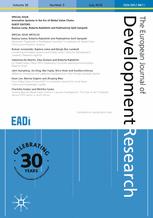Potato is a major food staple that makes a significant contribution to food security, having potential to smooth the volatility in food prices resulting from recent episodes of global food price increases. Despite its importance, most potato growers continue to use poor-quality seed, normally obtained from local/community sources. This study uses means-end chain theory to examine the drivers of use of quality seed potato, and the mental models associated with quality seed potato use. It finds that the decision to purchase and use quality seed is driven by deep-seated life goals that farmers pursue, and that profit-making is merely a means to these end/life goals. It further finds that the structure of mental models differs by the gender of the adopter and between adopters and nonadopters. The study concludes that the structure and content of farmers’ mental models differ by farmer type. The implications of the study findings for policy are discussed.
Motivations and mental models associated with smallholder farmers’ adoption of improved agricultural technology: Evidence from use of quality seed potato in Kenya
Citation: Okello, J.; Zhou, Y.; Barke, I.; Schulte-Geldermann, E. 2018. Motivations and mental models associated with smallholder farmers’ adoption of improved agricultural technology: Evidence from use of quality seed potato in Kenya. The European Journal of Development Research. ISSN 0957-8811. 31:2. pp. 271–292.
2018-08-27
POTATO AGRI-FOOD SYSTEMS, POTATOES,
Africa
Kenya
journal_article

